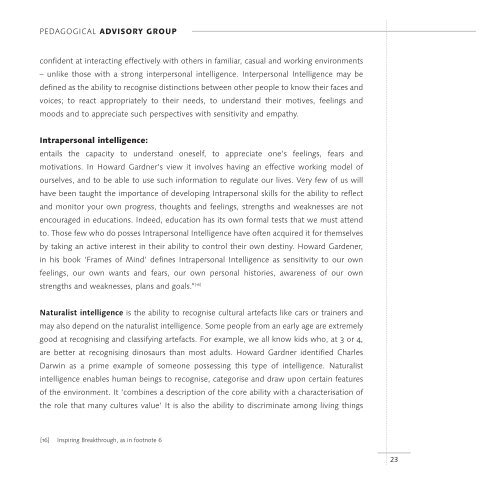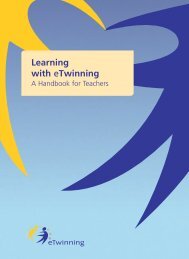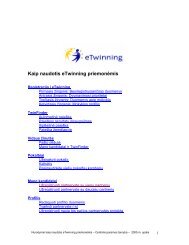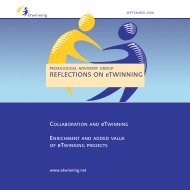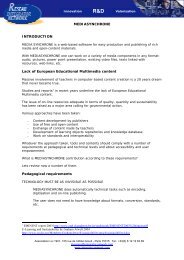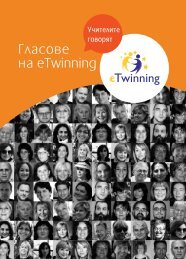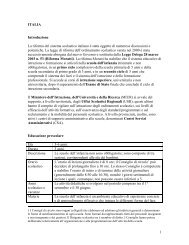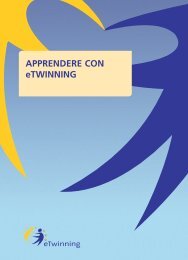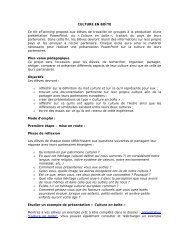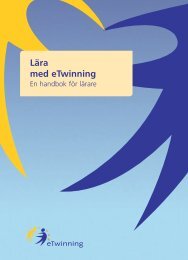REFLECTIONS ON eTWINNING
REFLECTIONS ON eTWINNING
REFLECTIONS ON eTWINNING
Create successful ePaper yourself
Turn your PDF publications into a flip-book with our unique Google optimized e-Paper software.
PEDAGOGICAL ADVISORY GROUP<br />
confident at interacting effectively with others in familiar, casual and working environments<br />
– unlike those with a strong interpersonal intelligence. Interpersonal Intelligence may be<br />
defined as the ability to recognise distinctions between other people to know their faces and<br />
voices; to react appropriately to their needs, to understand their motives, feelings and<br />
moods and to appreciate such perspectives with sensitivity and empathy.<br />
Intrapersonal intelligence:<br />
entails the capacity to understand oneself, to appreciate one's feelings, fears and<br />
motivations. In Howard Gardner's view it involves having an effective working model of<br />
ourselves, and to be able to use such information to regulate our lives. Very few of us will<br />
have been taught the importance of developing Intrapersonal skills for the ability to reflect<br />
and monitor your own progress, thoughts and feelings, strengths and weaknesses are not<br />
encouraged in educations. Indeed, education has its own formal tests that we must attend<br />
to. Those few who do posses Intrapersonal Intelligence have often acquired it for themselves<br />
by taking an active interest in their ability to control their own destiny. Howard Gardener,<br />
in his book ‘Frames of Mind’ defines Intrapersonal Intelligence as sensitivity to our own<br />
feelings, our own wants and fears, our own personal histories, awareness of our own<br />
strengths and weaknesses, plans and goals.” [16]<br />
Naturalist intelligence is the ability to recognise cultural artefacts like cars or trainers and<br />
may also depend on the naturalist intelligence. Some people from an early age are extremely<br />
good at recognising and classifying artefacts. For example, we all know kids who, at 3 or 4,<br />
are better at recognising dinosaurs than most adults. Howard Gardner identified Charles<br />
Darwin as a prime example of someone possessing this type of intelligence. Naturalist<br />
intelligence enables human beings to recognise, categorise and draw upon certain features<br />
of the environment. It 'combines a description of the core ability with a characterisation of<br />
the role that many cultures value' It is also the ability to discriminate among living things<br />
[16] Inspiring Breakthrough, as in footnote 6<br />
23


